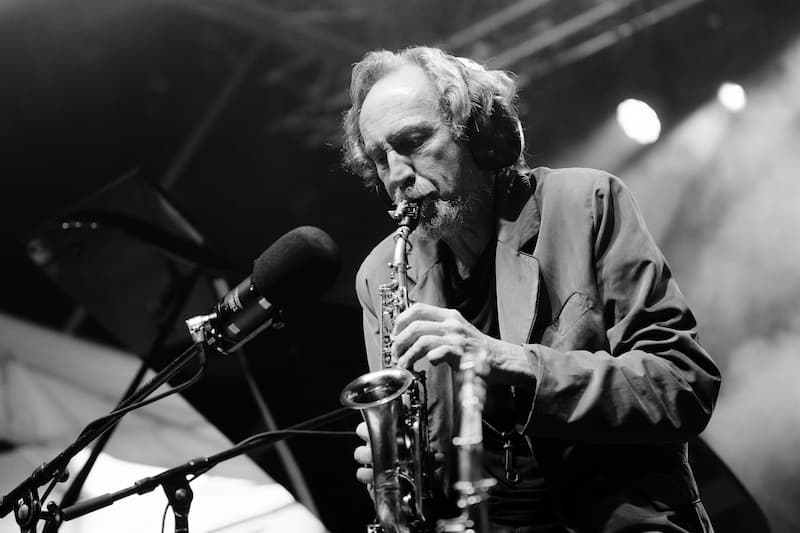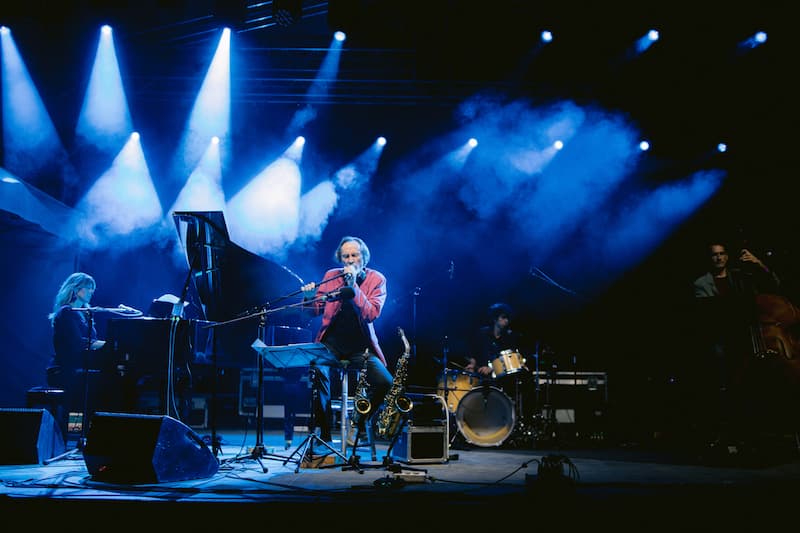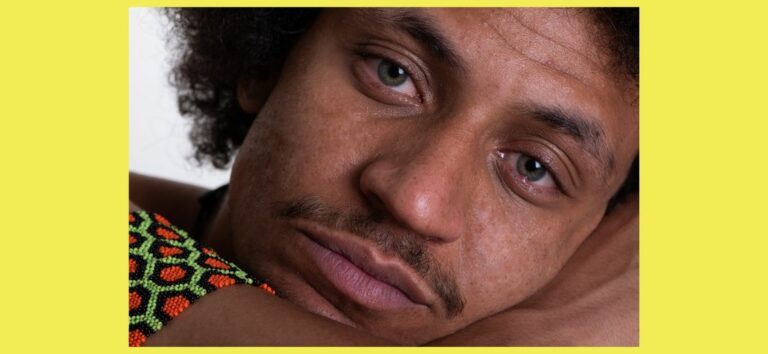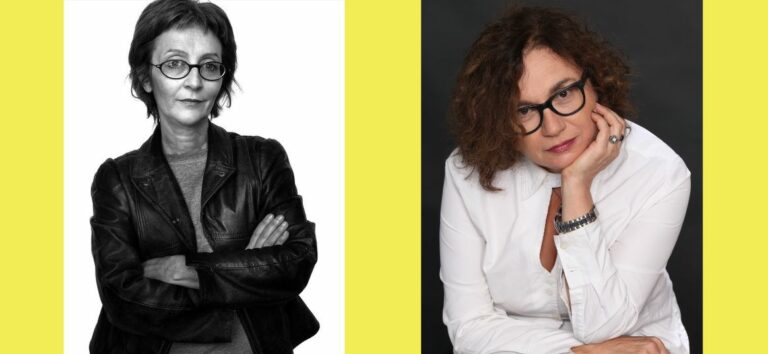A Pannonian man, philosophically minded, and spiritual, but still sensitised to the signals of the physical and earthly, Boris Kovač is an artist who moves along complex emotional paths, paths of joy, melancholy, feelings of transience, joie de vivre, nostalgia, passion, rapture, apocalypticism, etc. He is constantly questioning himself, which is then transferred to the music. For the reason that, apart from being an outstanding instrumentalist (primarily saxophonist and clarinettist), improviser and composer with endless imagination, Boris Kovač is also a capable arranger.
He made the old new, the existing refreshed, making his art a lifelong, exciting game of sounds and ideas. Therefore, it is not surprising that every concert by Boris Kovač is an unrepeatable experience and a unique delight for the spirit and senses. Over the past few years, we have seen this artist in various compositions and collaborations, although over time a team of the closest collaborators crystallised. Such are gathered in the New Ritual Ensemble. In addition to Boris (soprano and alto saxophone, clarinet, melodion, vocals), the band consists of Aleksandra Krčmar (violin), Lazar Novkov (accordion), Slobodanka Stević (piano, sampler), Siniša Mazalica (double bass) and Lav Kovač (drums, sampler). This concept was indicated at the programme-wide opening ceremony of the European Capital of Culture, on 13 January.
We will soon experience the same in full format, at a concert in Novi Sad’s Synagogue, on 10 November, on the first evening of the World music festival Pocket Globe within the Other? Europe programme arch. The evening will be opened by Damir Imamović with the Singer of Tales trio, after which Boris Kovač will draw us into his seductive world of intoxicating colours and harmonies, and vivid associations. At the same time, as he himself defined the programme that he will present at the Pocket Globe festival, he will tempt us with ‘lighter tones’ from his Bach-like musical well.

What do ‘lighter tones’ mean to you?
This programme is dominated by tones from the part of my oeuvre that is related to the world, jazz, quasi-dance music, and themes from movies and series. This is normally more common on concert scenes compared to my chamber music, which relies on ‘heavier tones’, which I play less often, because it requires a lot of practice, which for me, at this age and with the experience I have gained, no longer makes sense. That is why I keep turning, with more and more enthusiasm, to composing music and making films (Boris’ film 4 Suns & Piano will have its Serbian premiere on 6 November in Novi Sad). Also, I think that what the audience today needs more is to receive emotions and energy, especially during concerts, while listening to music in peace, at home, is something completely different, and my chamber music is more suitable for that, as it encourages contemplation. By the way, lighter tones are easier in form, but it does not mean that they are easier for adequate reception, although it may not seem so at first glance.
The musicians of the New Ritual Ensemble, with whom you will perform, are your long-term collaborators. What keeps you together and fosters such a strong love for working jointly?
These are the people who play my music the best in the world, and they also put up with me, which is probably not easy sometimes. While I was writing my music and composing, I would often hear them playing in my head. However, they always exceed my sonic expectations. These collaborators of mine have a lot of opportunities to play in other projects, various music, maybe even better than mine, but I believe that they rarely play something that they perceive so much as their own. This is the context we share – cultural, mental, and spiritual. It is a real Pannonian orchestra. I hope we will enjoy our rituals together for a long time to come.
Apart from the fact that you are very prolific as a composer, a striking feature of your art is the arrangements themselves. You often rework the same music, the same pieces for different ensembles, which to some extent also applies to the programme you will present with the New Ritual Ensemble. How inspiring do you find the rearrangement process itself? How much joy does this type of ‘artistic game’ give you?
Arrangements can significantly change the musical idea. In addition, through arranging, I also get the opportunity to perform music that I wrote, for example, 25 years ago, in a new form and with a new experience of the same notes. That combination of diversity and unity is a deep philosophical idea related to the essence of life as a temporal phenomenon. Because, as Søren Kierkegaard says – happiness is in repetition, not in searching for something new. Naturally, nothing can be repeated quite the same, especially in the art of performance, and that is why I still play. After six months spent at my ‘construction site’, I started to find myself in the act of making music again. But just composing? That seems boring to me. I do not understand composers who do not perform their music. Because music is primarily sound, and notes are a dead sign on paper.

A fraction of the space in the concert programme will be given to an original ballad of your son, Lav Kovač, the drummer of various ensembles you lead. Does that track perhaps stylistically fit well with the author’s expression of Lav’s father, or did it pull at your heartstrings due to some of its peculiarities?
That ballad has nothing to do with my music. It is simply beautiful. It was written by Lav, to whom I am grateful for playing my music for almost a decade and a half. He is one of the best musicians I have ever played with. And I told him that if he writes enough pieces, one day we will do a concert programme with only his original tracks. And that might happen before I finally ‘check out’. That would be incredibly lovely and meaningful.
What is the philosophy behind your emotionally complex music and when did you include melodion in your work? This instrument seems to perfectly accentuate your art.
Contemplation, dance and emotion are what music deals with better than any other art. And emotions are what guide us in life more than ideas, concepts, interests, etc. Music enters the blood without mediation, the so-called ‘light music’ deals with emotions because that is where we are all thinnest. Of course, people are different, so emotions are also different, i.e., their variations. My philosophy is that there is room for everything in a person: spirituality, emotions, eroticism, etc. It is just a question of when which door opens. I do not understand how anyone can write purely spiritual or intellectual music, no matter how developed their spiritual world is. Because a man is not just a spirit. As for the melodion, it has that nostalgic-melancholic character, which a lot of my music carries. One must be melancholic if one understands the essence of life.
Author: Marija Vitas
Photo: Vladimir Veličković







